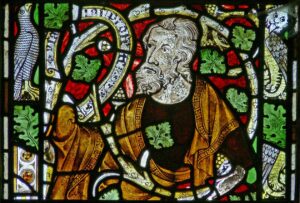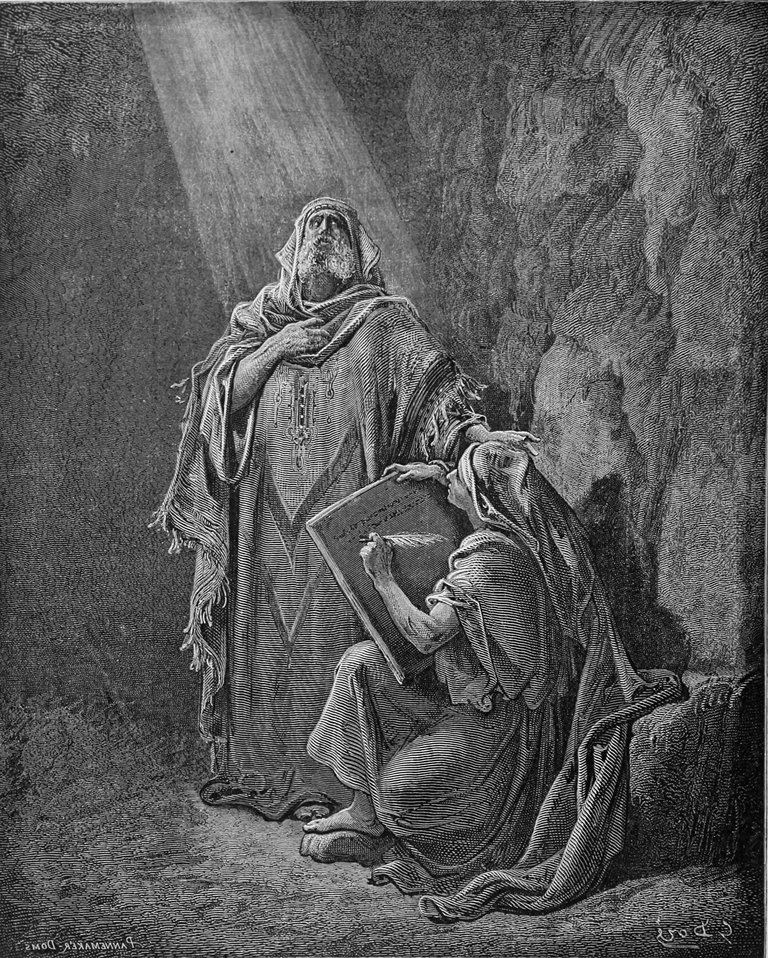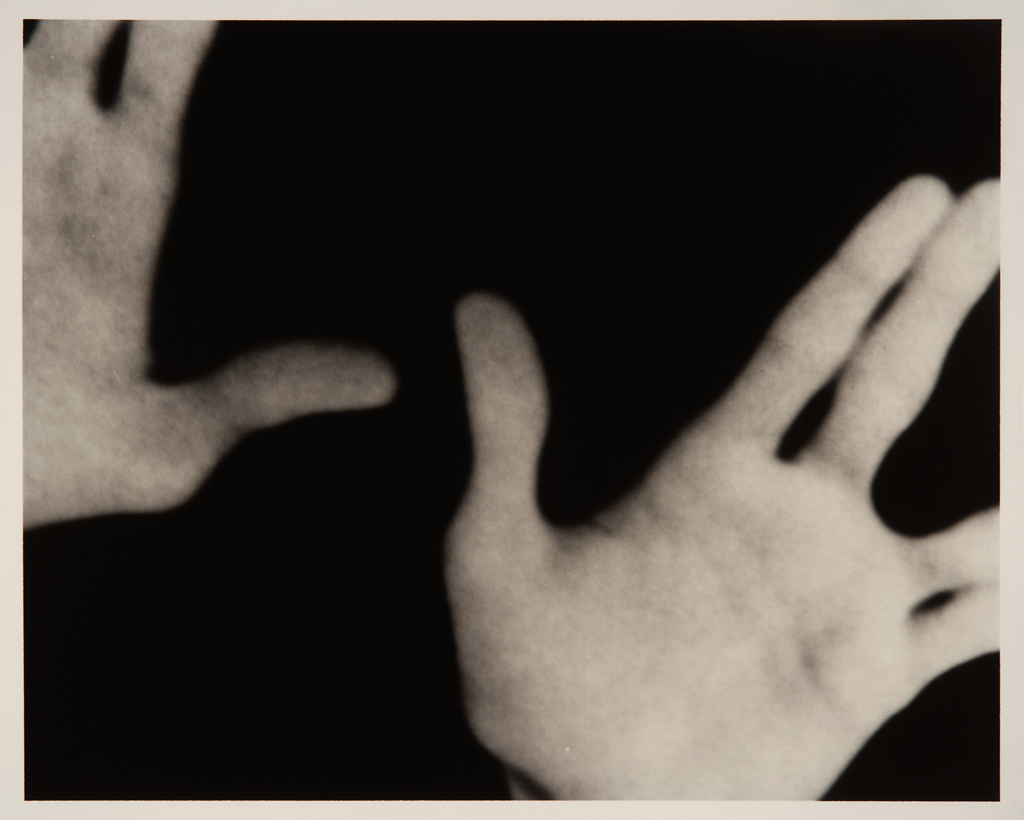The book known as the “Ascension of Isaiah” is, in its modern full form, a fundamentally Christian work. But large portions of it — sometimes referred to as the “Martyrdom of Isaiah” cycle — are almost certainly of Jewish origin, and conveniently enough those portions are distinct and relatively easy to separate from the Christian additions. In a separate resource, I’ve shared a cantillated Hebrew translation of the Martyrdom of Isaiah (the Jewish core of the work — 1:1-3:12 and 5). (The resource includes the corresponding Geʽez text and the preserved fragments of the Greek text where available.) The legend of Isaiah’s martyrdom by being sawed in half is also found in many other sources. The story includes fantastical elements. In its Ge’ez and Greek telling, the saw which fells Isaiah is itself made of wood. In the following (mainly) rabbinic sources, Isaiah is first swallowed by a tree that is then felled (by a metal saw).
| Sources (Hebrew, Aramaic, Greek) | Translation (English) |
|---|---|
Talmud Bavli, Yevamot 49b | |
תָּנֵי, שִׁמְעוֹן בֶּן עַזַּאי אוֹמֵר: מָצָאתִי מְגִלַּת יוּחֲסִין בִּירוּשָׁלַיִם, וְכָתוּב בָּהּ: אִישׁ פְּלוֹנִי מַמְזֵר מֵאֵשֶׁת אִישׁ, וְכָתוּב בָּהּ: מִשְׁנַת רַבִּי אֱלִיעֶזֶר בֶּן יַעֲקֹב קַב וְנָקִי. וְכָתוּב בָּהּ: מְנַשֶּׁה הָרַג אֶת יְשַׁעְיָה. |
It is taught in a baraita: Shim’on ben ‘Azzai says: I found a scroll of genealogies in Jerusalem, and in it was written: ‘so and so is a bastard of a married woman,’ and in it was written, ‘the mishnaic oeuvre of Rabi Eli’ezer ben Ya’akov is small but accurate,’ and in it was written, ‘Manasseh killed Isaiah.’ |
אָמַר רָבָא: מֵידָן דַּיְינֵיהּ וְקַטְלֵיהּ. אֲמַר לֵיהּ, מֹשֶׁה רַבְּךָ אָמַר: ״כִּי לֹא יִרְאַנִי הָאָדָם וָחָי״, (שמות לג:כ) וְאַתְּ אָמְרַתְּ: ״וָאֶרְאֶה אֶת ה׳ יוֹשֵׁב עַל כִּסֵּא רָם וְנִשָּׂא״. (ישעיה ו:א) מֹשֶׁה רַבְּךָ אָמַר: ״מִי כַּה׳ אֱלֹהֵינוּ בְּכׇל קׇרְאֵנוּ אֵלָיו״, (דברים ד:ז) וְאַתְּ אָמְרַתְּ: ״דִּרְשׁוּ ה׳ בְּהִמָּצְאוֹ״. (ישעיה כג:כו) מֹשֶׁה רַבְּךָ אָמַר: ״אֶת מִסְפַּר יָמֶיךָ אֲמַלֵּא״, (שמות לג:כ) וְאַתְּ אָמְרַתְּ: ״וְהוֹסַפְתִּי עַל יָמֶיךָ חֲמֵשׁ עֶשְׂרֵה שָׁנָה״! (מלכים ב׳ כ:ו) |
Rava said: He (Menasseh) judged him and killed him (Isaiah). He (Menasseh) said to him, “Moshe your master said, ‘For man cannot see Me and live,’ (Exodus 33:20) and you (Isaiah) said, ‘And I saw the LORD sitting on the high and exalted throne.’ (Isaiah 6:1) Moshe your master said, ‘Who is like the LORD our God, everywhere we call Them?’ (Deuteronomy 4:7) and you said, ‘Seek the LORD where They can be found.’ (Isaiah 55:6) Moshe your master said, ‘I will fulfill the number of your days,’ (Exodus 23:26) and you said, ‘And I have added fifteen years to your days!’ (II Kings 20:6)” |
אָמַר יְשַׁעְיָה: יָדַעְנָא בֵּיהּ דְּלָא מְקַבֵּל מָה דְּאֵימָא לֵיהּ, וְאִי אֵימָא לֵיהּ — אֶישַּׁוְּיֵיהּ מֵזִיד. אֲמַר שֵׁם אִיבְּלַע בְּאַרְזָא, אַתְיוּהּ לְאַרְזָא וְנַסְּרוּהּ. כִּי מְטָא לַהֲדֵי פּוּמָּא, נָח נַפְשֵׁיהּ. מִשּׁוּם דַּאֲמַר: ״וּבְתוֹךְ עַם טְמֵא שְׂפָתַיִם אָנֹכִי יוֹשֵׁב״. (ישעיה ו:ה) |
Isaiah said: “I know that he will not accept what I say to him, and if I say it to him, I will make him transgress knowingly.” He said the Name and became engulfed in a cedar. They took the cedar and sawed through it. When they reached his mouth, his soul rested. This was because he said, “Amidst a people of unclean lips I dwell.” (Isaiah 6:5) |
Talmud Yerushalmi, Sanhedrin 10:2:13 | |
כַּד דְּקָם מְנַשֶּׁה הַוָה פֶרֶי חוֹרֵי יְשַׁעְיָה בָּעֵי מִיקְטְלוּנֵיהּ וְהוּא עֲרַק מִן קֳדָמוֹי עֲרַק לְאַרְזָא וּבְלָעֵי אַרְזָא. חֲסַר צִיצִתָא דְגוּלְתֵיהּ. אֲתוֹן וְאָֽמְרִין קֳדָמוֹי. אֲמַר לוֹן. אַזְלוֹן וְנַסְּרוֹן אַרְזָא. וְנַסְּרוּ לְאַרְזָא וְאִיתְחֲמֵי דָּמָא נְגַד. |
When Manasseh arose, he went feral after Isaiah. He went to kill him, and he (Isaiah) fled from before him. He fled to a cedar and the cedar engulfed him, except for a single fringe of his garment. They (Menasseh’s men) came and said it before him (Menasseh). He said to them, “Go and cut down the cedar.” And they cut down the cedar and found the blood flowing. |
Targumic Tosefta to Isaiah 66:1 | |
נְבוּאַת יְשַׁעְיָה דְּאִיתְּנַבֵּי בְּסוֹף נְבוּאָתֵיהּ בְּיוֹמֵי מְנַשֶּׁה בַּר־חִזְקִיָּה מֶלֶךְ שִׁיבְטָא דְּבֵית יְהוּדָה בְּשִׁבְעַת עֲסר֙ בְּתַמּוּז בְּשַׁעֲתָא דְּאַקֵים מְנַשֶּׁה צִילְמָא בְּהֵיכְלָא׃ |
The prophecy of Isaiah who prophesied at the end of his prophecies in the days of Manasseh king of the tribe of the house of Judah on the seventeenth of Tammuz at the time that Manasseh had set up an idol in the Temple. |
וְאִתְנַבֵּיא לְעַמָּא יִשְׂרָאֵל כִּדְנַן אֲמַר יהוה שְׁמַיָּא כּוּרְסֵי יְקַרִי וּלְמַא אַתּוּן מִתְגַאִין קֳדָמַי בְּבֵיתָא הַדֵין דְּאִיתְבְּנֵי לִשְׁמִי׃ הֲלָא עִילָּאִין וְתַחְתָּאִין לָא־מָצוּ לְסוֹבְלָא שְׁכִינַת יְקָרִי כְּדַאֲמִיר עַל־יְדֵי שְׁלֹמֹה מַלְכָּא אֲרֵי מָאן סָבַר וּמָאן דַמֵּי דִּבְקוּשְׁטָא אִיתְרְעֵי יהוה לְאַשְׁרָאָה שְׁכִינְתֵיהּ בְּגוֹ בְּנֵי אֶינָשָׁא דְּדַיָּירִין עַל אַרְעָא הָא שְׁמַיָּא וּשְׁמֵי שְׁמַיָּא לָא יָכְלִין לְסוֹבְלָא יְקָרָךְ אַף אֶלָהֵין בֵּיתָא הַדֵין דְּבַנֵיתִי הַשְׁתָּא׃ לֵית רַעֲוָא קֳדָמַי בֵּיהּ בָּתַר דְּאַתּוּן מַרְגִּזִין קֳדָמַי בְּכֵן הָא גְּזֵירְתָּא נַפְקָת מִן קֳדָמַי הָא אֲנָא מֵייתֵי יַת נְבוּכַדְנֶצַּר וְיַחְרִבִינֵיהּ וְיַגְלֵי יָתְכוֹן מִן קַרְתָּא יְרוּשְׁלֵם׃ |
And he prophesied to the people Israel: “Thus says the LORD — the heavens are the seat of My glory; why would you glorify yourselves before Me in this house that was built for My name? Is it not true that the highest and lowest places cannot hold the Presence of My Glory, as it was said by the hand of King Solomon — Who would think and who would consider it true that the LORD chose to give over Their Presence into the midst of humans dwelling on earth? Behold, the heavens and the heavens’ heavens cannot hold My glory, all the more so this house that I built now![1] A rephrased I Kings 8:27 It is not desirable before Me in it after you have enraged me. Thus behold, a decree has come down from before Me: behold I am bringing Nebuchadnezzar and he will destroy it and exile you from the city of Jerusalem.” |
וְכַד שְׁמַע מְנַשֶּׁה פִּתְגָמֵי נְבוּאַת תּוֹכַחְתֵיהּ דִישַׁעְיָה אִיתְמְלֵּי חֵמָא עֲלֵיהּ וַאֲמַר לְהוֹן לְעַבְדוֹהִי תַּפְסוֹהִי׃ רְהַטוּ בָּתְרֵיהּ לְמִיתַּפְסֵיהּ וַעֲרַק מִן קֳדָמֵיהוֹן וּפְתָח אִילָן חַרוּבָא פּוּמָא וּבְלָעֵיהּ׃ אֵייתֵי נְסָרִין דְּפַרְזְלָא וְנָסְרוּ יָת אִילָנָא וַהֲוָה דָּמֵיהּ דִּיְשַׁעְיָה נְבִיָּיא נָגֵיד הֵיךְ מוֹי׃ הָדָא הִיא דִּכְתִיב אַף דָם זָכֵּי אֲשַׁד מְנַשֶּׁה סַגִי לַחְדָא עַד דְּמַלֵּי יָת יְרוּשְׁלֵם סֵיפָא בְּסֵיפָא בַּר מֵחוֹבוֹהִי דְּחַיַּיב יָת דְּבֵית יְהוּדָה לְמֵיעֲבָד דְּבִישׁ קֳדָם יהוה׃ |
And when Menasseh heard the words of the prophecy of the rebuke of Isaiah he was filled with rage at him, and said to his servants, “Seize him!” They chased after him to seize him, and he fled from before them, and a carob tree opened its mouth and engulfed him. They brought iron saws and sawed the tree, and Isaiah the prophet’s blood poured like water. Thus it is written — So too Manasseh spilled innocent blood, a great much, until he filled Jerusalem from end to end, apart from the sins that he sinned in making the house of Judah do evil before the LORD.[2] A slightly rephrased II Kings 21:16 |
עַד דְיִקְטַל יְשַׁעְיָה הֲוָה מוֹכַח לְהוֹן וַאֲמַר לָא תְהוֹן סָבִירִין דְּבִזְכוּתְכוֹן אִיתְבְּנֵי בֵּיתָא הָדֵין אֶלָהֵין בִּזְכוּת צָדִּיקַיָּא אַשְׁרֵי קוּדְשָׁא בְּרִיךְ הוּא שְׁכִינְתֵּיהּ בְּגָוֵיהּ׃ וּבְרַם הַשְׁתָּא אֲמַר יהוה שְׁמַיָּא כּוּרסֵי יְקָרִי וְאַרְעָא כֵּיבַשׁ קֳדָמַי אֵידֵין בֵּיתָא דְתִבְנוֹן קֳדָמַי וְאֵידֵין אֲתַר בֵּית אַשְׁרָיוּת שְׁכִינְתִי׃ (ישעיה סו:א) |
Until he was killed, Isaiah was rebuking them, saying, “Don’t put it in your mind that by your merit this house was built! Only by the merit of the righteous did the blessed Holy One give over Their Presence into it. And even now, the Lord said: “The heavens are the seat of My glory, and earth is the footstool before Me! Which house can you build before Me, and which place is a resting-place for My Presence?” (Isaiah 66:1) |
Athanasius of Alexandria, “On the Incarnation,” 37 | |
ἡσαΐας ἐπρίσθη μέν, ἀλλ’ οὐκ ἐπì ξύλον κεκρέμασται· |
Isaiah was sawn, but he was not hanged on a tree. |
Qaṣaṣ al-Anbiyā’, ibn Kathir | |
Ibn Ishaaq also reported an Israelite interpolation which said that when Isaiah was passing by a tree, it opened, and he entered therein; but Satan saw him and held onto the loop of his garment so that it stuck out. When they saw it, they brought a saw and sawed the tree, and him with it. Indeed, from Allah we come and to him we return. |

“🗐 The Martyrdom of Isaiah — additional sources for the Jewish core of the work compiled by Isaac Gantwerk Mayer” is shared through the Open Siddur Project with a Creative Commons Attribution-ShareAlike 4.0 International copyleft license.










The rabbinic sources on the Martyrdom of Isaiah here present a really interesting response to Christianity, I think. While searching for a featured image, I came across the medieval stained glass windows presenting a concept — the Tree of Jesse, and so was introduced to the Christological importance of Isaiah in the lineage they propose for their Messiah — one which they believe begins with Isaiah.
The significance to our story here is that the “Tree of Jesse” is metaphorically rooted in Isaiah, i.e., his prophecies. So a cutting down of Isaiah (via a saw made of wood) or a cutting down of a living tree giving the prophet sanctuary, must signify some sort of inherent problem with the lineage of authority from Isaiah. The rabbinic rejoinder to the “Tree of Jesse” literalizes the tree and connects the profound and hideous suffering of Isaiah to early Christianity’s misappropriation of his prophetic lineage.
The resonance of the corrupt nature of the Christian appropriation of Isaiah is amplified in the parallel (or obliquely referenced tale) of Manasseh introducing some sort of Asherah into the Holy of Holies. I take it that this is another way of the rabbis referencing the corruption of the tradition of Moses as already being presaged or even in a sense counter-prophesied by the example of Manasseh.
I’m also struck here by the vision of Torah as a Tree of Life to all who cleave to her (Proverbs 3:18). In our story here, the tree that gives sanctuary to Isaiah shares his fate, literally bleeding his blood. It’s an evocative image which I want to reflect on more on Tu biShavat, when “the sap is rising.” Is the tree here an entity with agency to conceal the hunted righteous, as so many righteous-gentiles throughout history? While Isaiah’s suffering is foregrounded, we are obligated as moral readers to how this tree has endangered itself in providing sanctuary to the desperate. Or perhaps the miracle of this tree is rather an expression of the natural world extending itself into human affairs in its own profound resistance against injustice? Or it merely the fantastic consequence of an uttering of the ineffable shem hameforash? Even if it is the latter, I think it behooves us as readers, or listeners of legends, to be careful not to be passive recipients of the weird and uncanny, but to listen these tales wholly and with our hearts.
To this, I also want to make a note here how this tale of Isaiah reminds me of another story, the tale of Honi haMeagel’s time dilation — disappearing from his own time after slipping into a deep sleep behind a boulder, waking into another age altogether. There is no sheltering tree for Honi. The boulder is just an inanimate prop in the story… or is it? Both tales involve wonder-working heroes with tragic fates in a time of profound schisms. Some wonder how and whether the figures of Honi and Jesus may be related, whether the former presages the latter.
While preparing this work for publication, I began thinking how the Martyrdom of Isaiah fits within the martyrdom tradition in Judaism and our Ḥanukkah stories, especially among the tales of resistance against forced assimilation and cultural genocide in Ⅰ and Ⅱ Maccabees, Megilat Antiochus, and Megillat Yehudit. Through the desperate lens of the Bar Kochba revolt, these earlier stories of martyrdom must have been deeply resonant and appealing for framing rabbinic Judaism’s existential and cultural foes. Reflecting on this, I realized that the rabbinic response here connects just as strongly to Toldot Yeshu (and Nittel Nacht) in presenting a counter-Christian narrative as an inoculant against cultural infiltration and profound heresy.
One final thought. Reading the Martyrdom of Isaiah, it is hard for me to understand how or why infamous enemies of the Torah are employed to martyr and torture the righteous for the sake of some cosmic rectification. What a perplexing motif! Presenting tragedies befalling Israel, especially compounding tragedies, as a means by which errors of cosmic proportion are resolved must be rooted in the example presented in Sefer Iyov (the Book of Job) — one which explains the problem of the suffering of Israel evil at large in a world ostensibly ruled by the blessed Holy One. That these resolutions are enacted by enemies of Israel and Torah, also helps to explain how the existence of such antagonists is permitted in the first place. Everyone has their place and wickedness is ultimately utilized in the service of sustaining the existence of the world itself — a “good” compared against the possibility of the blessed Holy One simply ending the world altogether as a lost cause. While bitter, I think this perspective is ultimately world-affirming, and for that reason alone, an improvement on ways of apprehending reality that are either “positively” self-deceptive or else entirely self-serving in the face of cosmic uncertainty.